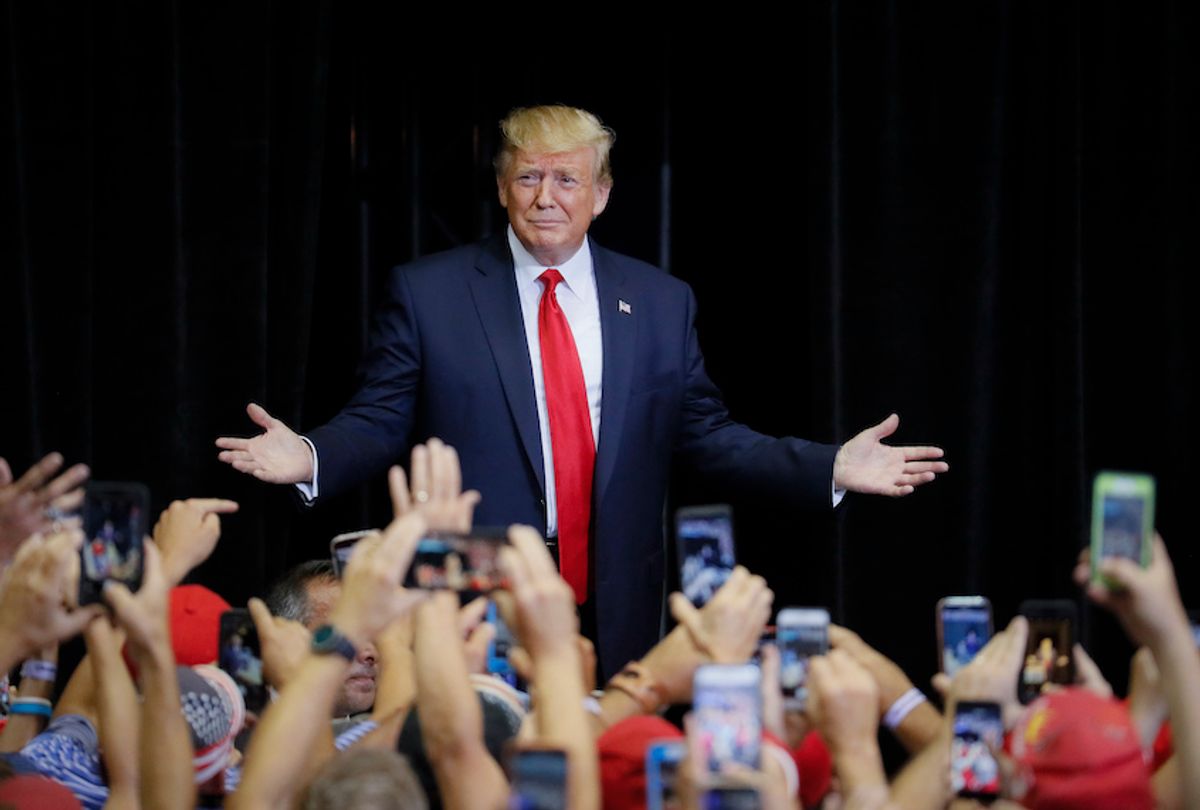Four Republican state parties are poised to cancel their perspective presidential caucus and primary contests, moves which would help President Donald Trump hold on to the party's nomination and avoid criticism from rivals.
Arizona, Kansas, South Carolina and Nevada are expected to finalize the cancellations in meetings over the weekend, Politico reported on Friday, citing three GOP officials who were familiar with the plans.
Joe Walsh, a one-term congressman from Illinois who last month announced plans to challenge Trump for the Republican nomination, said the potential moves were "wrong" and underscored that "Trump is afraid of a serious primary challenge, because he knows his support is very soft."
"Primary elections are important, competition within parties is good, and we intend to be on the ballot in every single state no matter what the RNC and Trump allies try to do," he added. "We also intend to loudly call this undemocratic bull on a regular basis."
Walsh is one of several Trump Republican challengers who would face an uphill battle to catch fire during the 2020 primary. Former Massachusetts Gov. Bill Weld is also vying to unseat Trump.
"We don't elect presidents by acclamation in America," Weld said. "Donald Trump is doing his best to make the Republican Party his own personal club."
John Kasich, the former governor of Ohio who unsuccessfully challenged Trump for the GOP nomination in 2016, and Mark Sanford, the former governor and congressman of South Carolina, could also join the field. Both have made trips to New Hampshire, the first-in-the-nation primary, as they reportedly weigh challenging Trump.
So far, none of these potential candidates seem likely to pose a serious threat to Trump's re-election chances. The coalition of outspoken "Never Trump Republicans" has dwindled precipitously since Trump shocked the GOP establishment in 2016 when he locked the party's nomination before going on to topple Democratic presidential nominee Hillary Clinton to win the White House.
Officials in several states defended canceling their primaries, arguing the moves would prevent them from financing a nominating contest which feels like a foregone conclusion.
"It would be malpractice on my part to waste money on a caucus to come to the inevitable conclusion that President Trump will be getting all our delegates in Charlotte," Nevada GOP Chairman Michael McDonald said. "We should be spending those funds to get all our candidates across the finish line instead."
Kansas GOP Chairman Michael Kuckelman estimated it would cost his party $250,000 to hold the caucus, money he said could instead be used to win races.
As the 2020 election nears, Trump appears to have the overwhelming support of his party's voters — and of the Republican Party's apparatus.
The Republican National Committee (RNC) has also unanimously approved a non-binding resolution declaring its "undivided support for President Donald J. Trump and its effective presidency."
Earlier this year, the president's re-election campaign and the RNC merged their field organizing and fundraising operations into one group named "Trump Victory," an unprecedented move that made it more difficult for an opponent to mount a bid against Trump. The re-election machine said it raised $105 million in the second fundraising quarter of 2020.
Walsh, a conservative radio host, appeared to feel the power of Trump's hold on the GOP last month, when he revealed on CNN that he had lost his popular radio show in the days after announcing a bid to challenge Trump. Walsh noted that "80 to 90 percent" of his listeners support the president, and he admitted that he knew his program "could be in jeopardy" when he made the decision to throw his hat in the ring.
The Republican Party canceled primaries in 1984 to boost Ronald Reagan and again in 2004 to help George W. Bush. Democrats have used the tactic, too, to bolster Bill Clinton in 1996 and Barack Obama in 2012.



Shares